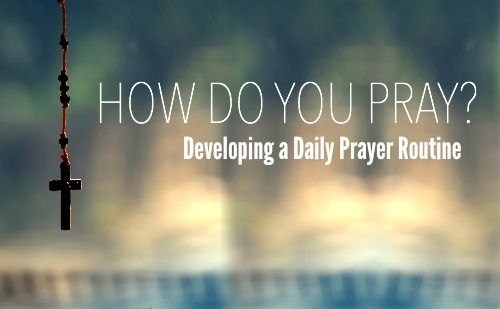The Making Disciples Today Blog has reflections to help you grow in your journey of missionary discipleship, reviews on recommended Catholic evangelization resources, and practical insight on how to evangelize in your daily life.
- Details
- Written by Burning Hearts Team
Diocese honors apostolates, retreat movements at Jubilee Mass April 8
OSHKOSH — Kristin Bird and her Burning Hearts Disciples are companions on the journey with those looking to renew or deepen their faith. “It’s the model that Jesus did,” said Bird, founder of Burning Hearts Disciples. “We walk with people.”
Kristin Bird, a member of Most Blessed Sacrament Parish in Oshkosh, is founder of Burning Hearts Disciples. The nonprofit apostolate was formed to “further the Catholic Church’s call to form disciples through the New Evangelization.” (Brad Birkholz | For The Compass)
This apostolate ministry will be one of many recognized at the April 8 Jubilee Mass at St. Francis Xavier Cathedral, Green Bay. Each month during 2018, the diocese marks the 150th anniversary of the diocese with a special themed celebration. April’s focus is Diocesan Apostolates and Retreat Movements.
Bird started Burning Hearts Disciples nearly four years ago with the help of her newly-retired parents, Steve and Maureen Anderson, and donors who promised funding for two years.
- Details
- Written by interGen support team
Kerygma (noun) ke·ryg·ma \kə->rig-mə\
Definition:
The word kerygma is related to the Greek verb κηρύσσω (kērússō) (pronounced "kay-roos'-so") meaning to cry or proclaim as a herald. It means proclamation, announcement or preaching.
The kerygma is the message of the Gospel; the apostolic proclamation of salvation through Jesus Christ. It is the core and heart of our faith.
If you were to sum up the core message of the Gospel in just a few sentences, what would you say that it is?
As you can see, the kerygma is not complicated. It is not (yet) concerned with the details of morality or magisterium. It is a telling of the story of our salvation in its simplest and most important form. It is not just for Catholics. It is so fundamental, that this core Gospel message crosses all Christian denomination boundaries and barriers.
- Details
- Written by Burning Hearts Team
Daily Prayer Routines
Life makes many demands on today’s families, and lives are often full and hectic. Finding the time for prayer can seem difficult - especially if you aren’t sure where to begin or how to pray as a family.
Prayer is a Gift
One reason many of us don't pray more often or more consistently is because we have questions and uncertainties about prayer. We worry that we’re doing it wrong or that it’s not really working. One of the best ways to combat the neutralizing effect this doubt can have on your prayer life is to remember that prayer is a gift.
“[Prayer] is not what we do but what God does in us, how God loves us, addresses us, looks at us, enlightens us, forgives us, heals us, purifies us and eventually transforms us.” Dominican Nuns Ireland Family Day Address (www.dominicannuns.ie)
God is constantly seeking us. Like the father who daily scanned the horizon for his prodigal son, God waits patiently for us. Prayer is the gift, given to us by God, to respond to His call and to seek him in return. Every moment of prayer begins, not with us, but with God’s call to us - the desire for union with him that he has placed deep within our hearts.
Our prayer is a response to that call. As the Catechism of the Catholic Church says,
“Prayer is both a gift of grace and a determined response on our part. It always presupposes effort” (2725).
Make an Intentional Plan
John Piper, in his book Desiring God, says that a main hindrance to prayer is our lack of planning:
"If you want to take a four-week vacation, you don't just get up one summer morning and say, 'Hey, let's go today!' You won't have anything ready. You won't know where to go. Nothing has been planned."
Take the time to create a plan for your own personal prayer life. It doesn’t have to be rigidly followed, but can serve as a grounding reminder -- a thriving, regular, consistent time of worship of and communion with God in prayer.
Tools to Help
We have developed four tools to help you get started developing your personal prayer routine...
- Details
- Written by Burning Hearts Team
Accompaniment and Lent
The forty days of Lent can seem like a long time, especially if one is giving up a favorite food or video game. It's helpful to have a friend to keep us going. He or she can encourage us, challenge us, and pick us up if we falter. In fact, that kind of accompaniment - a holy friendship developed out of mutual love for one another and a desire to walk with one another into deeper relationship with Jesus - is the heart of evangelization and discipleship.
This year, consider finding an accompaniment partner and approaching Lent as a team. That doesn't mean you have to give up—or do—the same exact things, although that's a possibility. It does mean sharing your Lenten resolution(s) and asking for each other's prayers and active support. People often find that they're much more likely to keep their resolutions when they hold themselves accountable to another person. Knowing that someone walks with us, even if it's not exactly the same path, can be a great comfort and motivator.
If you're thinking about Lenten resolutions, consider the traditional practices of prayer, fasting and almsgiving (works of charity). Here are some ideas to get started.




